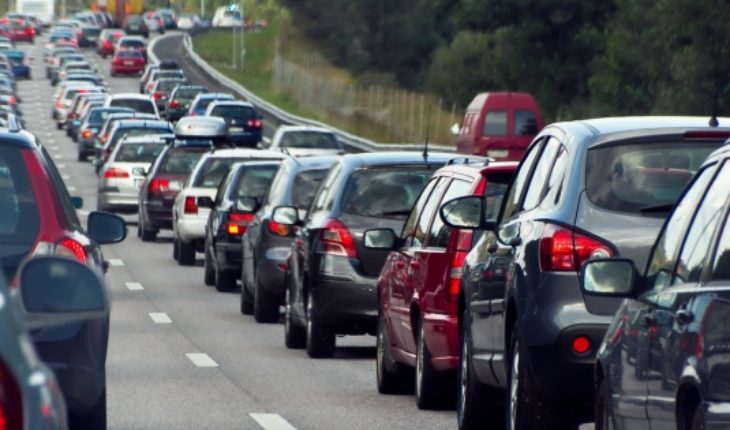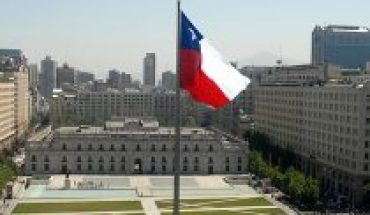We gotta go!
Holidays are lived as a physiological necessity, such as eating or sleeping. They are a reward for a few months of hard work, disconnection from stress, the desire to change airs and “recharge the batteries”. It’s a way to escape, not so much from work as from everyday life, because the unemployed, the retirees or the teens also travel.
Going on a trip is feeling free and discovering new things. The holidays reconnect us, we spend time with family and friends. They also serve us to cultivate a sense of belonging to a community. Going to the same place is logical, since what counts are meetings with parents, grandparents or friends in places that are full of memories such as a campsite, the village or the family home. They are important places of socialization since childhood: the beach, mountain excursions, pétanque games, the bar, the disco… Whatever.
A social obligation
It happens that holidays are now a social obligation. When parents can’t go on a trip, they send their children to colonies or camps. And the first thing kids do when they go back to school after vacation is describe them.
Travel on demand
Selling a trip is selling dreams. For some it is an effort to slow down the life cycle and counteract the changes that make us obsolete: the elderly carry out youth activities, there are second honeymoons, ecotourism exploits the nostalgia of a more authentic lifestyle, the mountain it concentrates the imaginaries of eternity (duration of the mineral) and moral purity (spiritual fusion, monarchical contemplation.
What has changed the most is the duration, the destination, the extra expenses such as restaurants and souvenirs, go closer, cheaper, more so much in the meantime. The motivation of the first trips for the poor of the polluted cities of the North of England in the 19th century was to take the train to flee to the countryside and the mountain; it was a moral and political issue: reversing alienation and emulating the ability of the rich to leave home.
Travel for the rich and for the poor
But it is curious that classes with more alienated jobs tend to choose more alienated holidays: overcrowded tourism, beach, camping, an organized tour… The ademity class, on the other hand, goes on holiday further and does so more often, and has much higher non-food expenses than the former.
It is in these differences that social inequalities lie. And tourism reproduces them. 34.2% of Spaniards cannot leave one week of leave a year, according to the 2018 Eurostat survey. And people think that if they can’t afford a trip, their job must be a bad job.
What will the neighbors think?
Neighbors and acquaintances also watch us and staying home is a way to punish ourselves. The important thing is to have something to say to others. It is a logic of differentiation, because of the value that tourism has of a sign of hierarchical status and of the desire to distinguish itself from the one who cannot travel, in the style of The System of Objects, by Jean Baudrillard.
To go on vacation you need to have three things: money, time and social recognition (in the early twentieth century, puritanical ethics in America negatively valued a person who dilapidated their money on vacation).
Many bridges or Christmas are spent as a family, but it is not presumed to be, it is less rewarding, so we only comment on it among ourselves; and instead with the others we presume that we’ve been “the New Year in New York” or “shopping in London.”
Exaggerating the story
10% of Spaniards admit to exaggerating their holiday story to generate envy, thus exceeding 7% of the European average.
According to Jean Viard, it comes out much cheaper to go seven days in the sun than to ski to Sierra Nevada or Chamonix. Skiing has become more expensive, as well as it has become a sporting activity: if it was once a game, today the slopes are occupied by good skiers, which excludes the fat and the elderly, those who are not fit.
Traditionally, he would go to the beach in summer and in winter to the mountain. Today, this time is arrhythmic: going to the beach in winter is like eating tomatoes in mid-December.
The physiological need for light also seems real in certain countries located in the far north of Europe.
It has also become a social imperative (for some) to be permanently slightly tanned. It is a sign of belonging to a particular branch of society.
Whatever it is, travel is almost a social “obligation.” Enjoying more or less is almost secondary.
David Lagunas, Professor of Anthropology, University of Seville
This article is republished from The Conversation under a Creative Commons license. Read the original article.
translated from Spanish: Travelling on vacation says about us a lot more than we think
January 13, 2020 |




